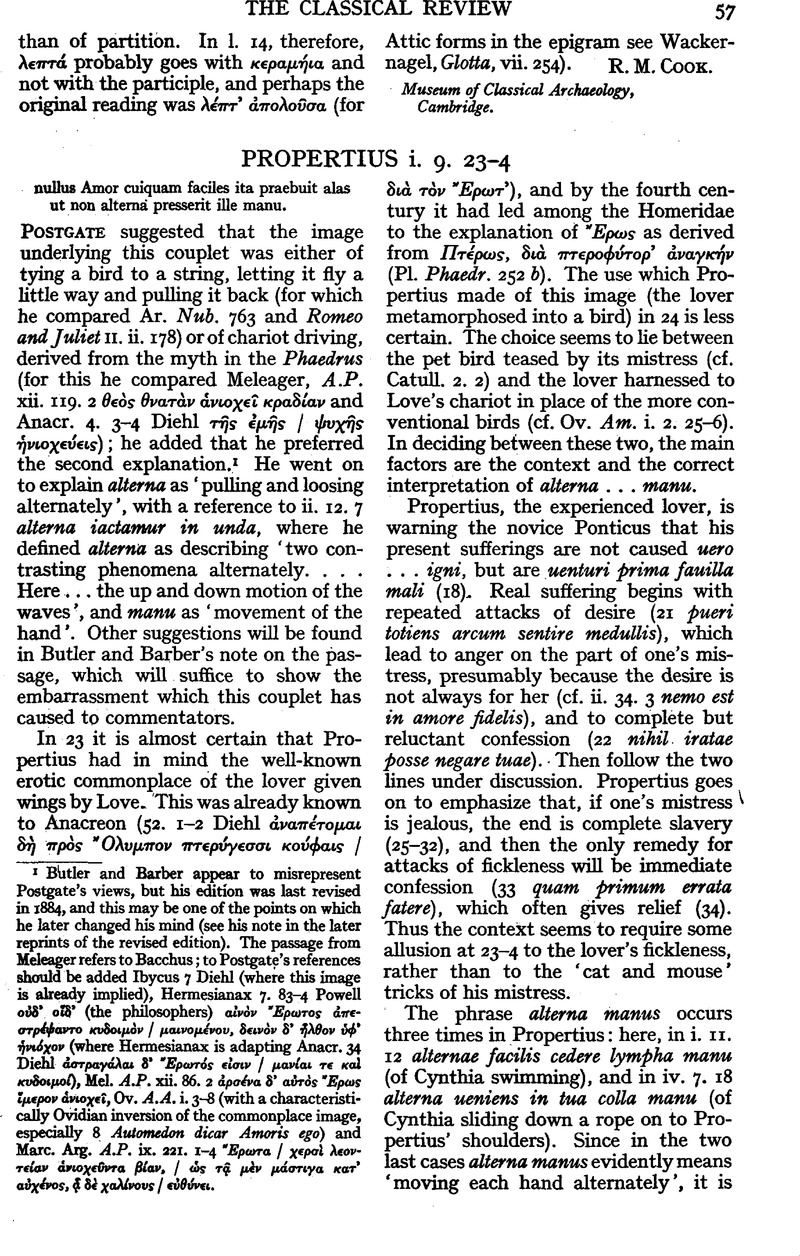No CrossRef data available.
Published online by Cambridge University Press: 27 October 2009

page 57 note 1 Butler and Barber appear to misrepresent Postdate's views, but his edition was last revised in 1884, and this may be one of the points on which he later changed his mind (see his note in the later reprints of the revised edition). The passage from Meleager refers to Bacchus; to Postdate's references should be added Ibycus 7 Diehl (where this image is already implied), Hermesianax 7. 83–4 Powell οὐδ᾽ οἵδ᾽ (the philosophers) αἰυ⋯υ Έρωτος ⋯πεστρ⋯Ψαυτο κυδοιμ⋯υ / μαιυομ⋯νου, δειν⋯ν ἦλθον δ’ ὑφ’⋯νι⋯χον (where Hermesianax is adapting Anacr. 34 Diehl ⋯στραγ⋯λαι δ’ Έρωτ⋯ς εἰαιν / μαν⋯ααι τε κα⋯κυδοιμο⋯), Mel. A.P. xii. 86. 2 ⋯ρσ⋯να δ’ αὐτ⋯ς Έρωςἵμερον ⋯νιοχεῖ, Ov. A. A. i. 3–8 (with a characteristically Ovidian inversion of the commonplace image, especially 8 Automedon dicar Amoris ego) and Marc. Arg. A.P. ix. 221. 1–4 Έρωτα / χερσ⋯ λεοντε⋯αν ⋯νιοχε⋯ντα β⋯αν, / ὡς τᾷ μ⋯ν μ⋯ατιγα κτ’αὐχ⋯νος, ᾇδ⋯ χαλ⋯νους / εὐθ⋯νει.
page 58 note 1 Cf. Liv. xxiii. 26. II ‘in hoc alterno pauore’ (the Tartesii had at first fled in panic, but they rallied, and the Carthaginians then broke in their turn, Stat. Theb. viii. 424).
page 58 note 2 Cf. Liv. xxiii. 29. 5 ‘Numidae …quibus desultorum in modum binos trahentibus equos inter acerrimam saepe pugnam in recentem equum ex fesso armatis transultare mos est.’